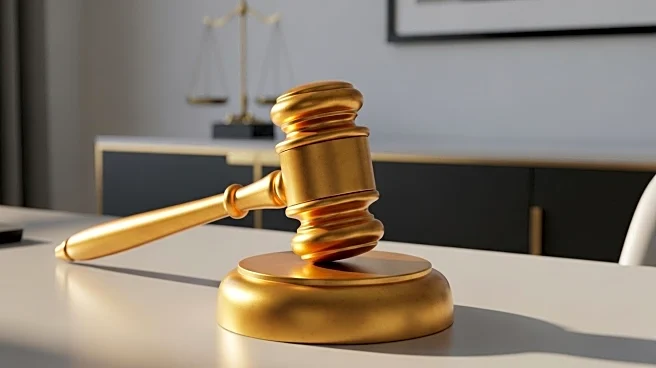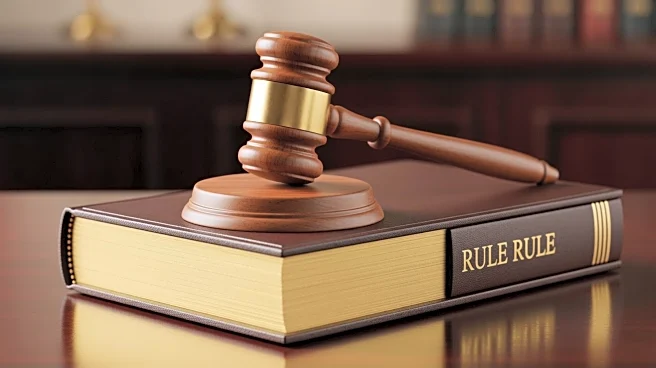What is the story about?
What's Happening?
The Trump administration is actively pursuing increased control over independent agencies like the Federal Communications Commission (FCC). This effort is part of a broader strategy to align these agencies more closely with presidential directives, potentially transforming them into entities that operate similarly to Cabinet agencies. The administration's approach involves legal challenges aimed at overturning precedents that protect board members from at-will dismissal by the president. This move has sparked debate over the potential impact on free speech, particularly in light of recent comments by FCC Chairman Brendan Carr regarding broadcaster actions against comedian Jimmy Kimmel. The Supreme Court is set to hear a related case in December, which could have significant implications for the structure and independence of federal agencies.
Why It's Important?
The push for greater presidential control over independent agencies like the FCC could have far-reaching implications for U.S. governance and civil liberties. If successful, this shift could centralize power within the executive branch, potentially undermining the independence of agencies designed to operate free from political influence. Critics argue that such changes could threaten free speech, as agencies like the FCC have significant regulatory power over media and communications. The outcome of this legal battle could set a precedent affecting numerous other agencies, impacting how they function and their ability to operate independently of presidential influence.
What's Next?
The Supreme Court's upcoming decision will be pivotal in determining the future of agency independence. If the court sides with the Trump administration, it could pave the way for increased executive control over a wide range of federal agencies. This decision could prompt reactions from political leaders, civil rights organizations, and the public, potentially leading to legislative efforts to restore agency independence. The case will also likely influence future administrations, regardless of political affiliation, in how they interact with and manage independent agencies.
Beyond the Headlines
The debate over the unitary executive theory, which underpins the administration's legal strategy, raises fundamental questions about the balance of power in the U.S. government. Proponents argue it aligns with the framers' intent for a strong executive, while opponents warn it could erode checks and balances, leading to an overconcentration of power. This issue highlights the ongoing tension between efficiency in governance and the preservation of democratic principles, such as accountability and separation of powers.
















